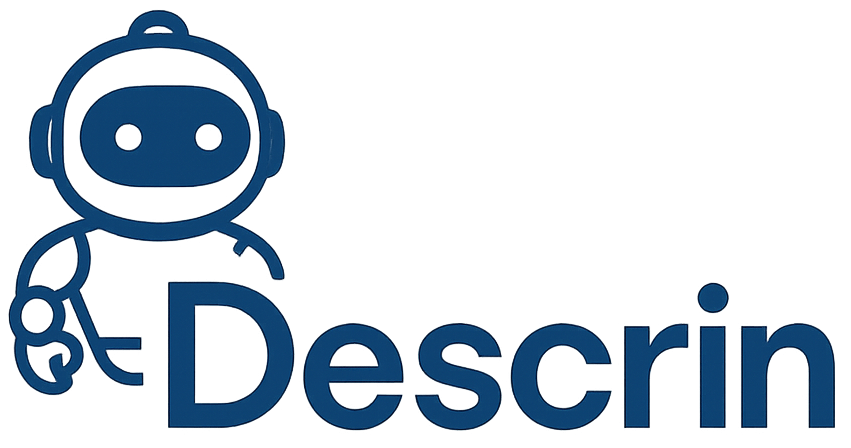AI Adoption at Canadian Universities Highlighted by Iraq

A major change has happened in the world of artificial intelligence education. Iraq has recognized the AI efforts of Canadian universities. This is a big step forward in global tech collaboration and education.
So, why is this important? It shows a new way of teaching AI, making Canadian universities leaders in tech training. This move shows a big commitment to better education and getting students ready for a tech-filled future.
Universities in Canada have been changing their courses to include advanced AI programs. This move has caught the eye of people around the world. It not only improves the quality of AI education but also opens up new chances for sharing knowledge and growing tech skills.
Table of Contents
Understanding the Significance of Iraqi Recognition
The partnership between Iraq and Canada in education is a big step forward. It shows how countries can work together in fields like artificial intelligence. This partnership is a key part of improving education worldwide.
Historical Context of Iraq-Canada Academic Ties
The relationship between Iraq and Canada in education has grown a lot. It has moved from just being diplomatic to being a strong educational partnership. This shows both countries are serious about improving education together.
- Established diplomatic educational exchanges
- Collaborative research initiatives
- Mutual academic standard development
Impact on International Education Standards
When Iraq recognizes Canadian universities, it means they see them as top-notch. This shows how careful checks help set high standards for education around the world.
| Assessment Criteria | Key Evaluation Points |
|---|---|
| Curriculum Quality | Advanced technological integration |
| Research Capabilities | Innovation and technological advancement |
Recognition Process and Criteria
To understand how universities are recognized, we need to look at the detailed standards. Canadian schools are checked thoroughly. They look at their tech, research, and how well students do.
- Comprehensive curriculum review
- Technical infrastructure assessment
- Research and innovation evaluation
This recognition sets a good example for future partnerships. It shows how working together in education can benefit both countries.
Current State of AI Programs in Canadian Universities

Canadian universities are quickly changing how they teach artificial intelligence. They are creating top-notch AI programs. This makes Canada a leader in technology.
Students looking for the best AI education have many chances. They can find great programs at many schools.
The AI scene in Canada is lively. Top schools have special programs for new tech challenges:
- University of Toronto’s Vector Institute offers advanced machine learning curricula
- University of Alberta’s renowned computer science department provides comprehensive AI training
- McGill University integrates interdisciplinary AI research approaches
These programs do more than just teach computer science. They mix theory with real-world use. This gets students ready for today’s tech world.
- Robust computational infrastructure
- Interdisciplinary curriculum design
- Strong industry partnerships
- Ethical AI development frameworks
Students get to dive into learning. They learn both the basics and how to apply them. This way, they’re not just tech-savvy but also know AI’s big picture.
“Canadian universities are redefining AI education through innovative, holistic learning models.” – Tech Innovation Review
AI Adoption in Canadian Universities Recognized by Iraq
The world is taking notice of Canada’s AI education. Iraqi recognition shows Canada’s top AI programs. Let’s dive into what makes Canadian AI education stand out.
Canadian universities lead in AI education. They mix research with new tech. Iraq’s recognition shows their big steps in AI.
Leading Universities in AI Implementation
Some Canadian universities are at the forefront of AI:
- University of Toronto – Known for its cross-disciplinary AI research
- University of Montreal – Pioneering machine learning programs
- University of Alberta – Advanced computational intelligence research
- University of British Columbia – Innovative AI infrastructure development
Recognized AI Programs
Specific programs in Canada have caught Iraq’s eye. They show top tech skills and research:
- Advanced machine learning techniques
- Ethical AI development
- Interdisciplinary AI applications
- Industrial collaboration frameworks
Technological Infrastructure Excellence
Canadian universities have top tech for AI research. They have high-performance computing centers and AI labs. These help in making new discoveries.
“The AI adoption in Canadian universities represents a new frontier of technological education and research.” – International AI Research Council
Exploring Canadian AI shows a vibrant education scene. It’s always pushing tech and getting global praise.
Cross-Border Educational Collaboration Opportunities

Canada’s AI programs are now recognized in Iraq. This opens up new chances for working together in education. It’s a big step towards changing how we learn globally.
As these chances grow, you’ll learn more about education around the world. Schools in Iraq and Canada are leading the way. They use AI to make learning available to everyone.
- Student exchange programs in AI and technology
- Joint research initiatives between universities
- Shared curriculum development projects
- Technology transfer opportunities
Iraq and Canada are building special ways to share knowledge. With GenAI, students can get top-notch education, no matter where they are.
“Educational collaboration transcends borders through innovative technological solutions” – AI Education Research Council
| Collaboration Focus | Potential Impact |
|---|---|
| Research Partnerships | Enhanced AI curriculum development |
| Student Exchanges | Global perspective in AI education |
| Technology Transfer | Accelerated learning opportunities |
These partnerships are changing how we think about education. They give students a chance to learn about the latest in AI.
Innovation Ecosystems and Research Partnerships

The Canadian AI innovation ecosystem is changing fast. Universities are now mixing theory with real-world use. This makes Canada a top player in AI.
Canadian AI skills are helping with teamwork across borders. This teamwork is changing how we think about research and innovation.
Research Centers and Labs
Universities in Canada are setting up top AI research centers. These centers are known for:
- Working together across different fields
- Having the latest in computer tech
- Working with international teams
- Trying to solve big problems
Industry-Academic Partnerships
Universities and companies are teaming up in new ways. This teamwork brings:
- More money for research
- Real solutions to big problems
- Better learning for students
- New tech to use in business
Knowledge Transfer Initiatives
New programs are speeding up AI progress worldwide. By sharing knowledge and working together on projects, Canadian universities are opening up new ways to work with others.
“Collaboration is the cornerstone of technological advancement in artificial intelligence.” – Dr. AI Research Expert
AI Curriculum Development and Implementation
Canadian universities are changing how they teach artificial intelligence. They use new ways to keep up with AI’s fast growth. This prepares students for the latest tech challenges.
Universities mix theory with practical skills in their AI programs. Key parts of modern AI teaching include:
- Hands-on project-based learning experiences
- Industry collaboration and real-world problem-solving
- Interdisciplinary approach to artificial intelligence education
- Adaptive learning modules addressing emerging technological trends
Putting AI programs into action needs smart plans. Schools work hard to keep learning fair and honest. They use strong systems to spot cheating and make sure everyone is treated equally.
| Curriculum Focus Area | Key Learning Objectives | Skill Development |
|---|---|---|
| Machine Learning Foundations | Advanced algorithmic understanding | Statistical analysis |
| Neural Network Design | Complex computational modeling | Deep learning techniques |
| AI Ethics and Governance | Responsible AI implementation | Ethical decision-making |
AI teaching must always be updated. Schools make learning spaces that can quickly add new tech and insights. This keeps students ahead in AI education.
“The future of AI education lies in creating adaptive, responsive curricula that bridge academic theory with real-world technological innovation.” – Dr. AI Research Expert
Student Experience and Career Opportunities
Canadian universities are changing the game in artificial intelligence education. They offer students amazing career paths in the AI field. With top-notch curriculum and training, students are at the cutting edge of tech.
International Student Perspectives
Students from all over the world are flocking to Canada for AI education. They see Canada’s dedication to tech talent. International students get:
- Multicultural learning environments
- Hands-on research opportunities
- Global networking platforms
Employment Prospects
The need for AI experts is growing fast in many fields. Canadian AI graduates have a strong edge in the job market. They find jobs in tech, healthcare, finance, and government.
| Industry | Average Starting Salary | Job Growth Projection |
|---|---|---|
| Technology | $85,000 | 22% growth |
| Healthcare | $75,000 | 18% growth |
| Finance | $80,000 | 16% growth |
Skills Development Programs
Canadian universities have special programs for AI skills. These programs give students the skills they need for the real world. They focus on practical training, making sure students can solve problems and have technical skills.
“Our goal is to create AI professionals who can drive technological transformation globally.” – Dr. Sarah Chen, AI Program Director
By investing in AI education, Canadian schools are preparing a new wave of tech leaders. They are ready to tackle the challenges of our digital world.
Challenges and Solutions in AI Education
Artificial intelligence education is facing big challenges today. Canadian universities are leading the way with new AI programs and updated curricula.
The main problems in AI education are:
- Technologies are changing too fast for old learning methods
- There are big questions about AI ethics
- Keeping the curriculum up-to-date is hard
- It’s important to include diverse views in AI studies
Universities are finding new ways to tackle these issues. They’re creating detailed plans for AI education that include:
- Adding real-world experiences to learning
- Using learning from different subjects together
- Setting clear rules for ethical AI use
- Creating flexible learning paths
The secret to success is having educational models that can adapt fast to new tech. By using new teaching methods and working together on research, Canadian schools are turning challenges into chances for growth.
AI education is not just about teaching technology, but about preparing future innovators to solve complex global challenges.
Knowing about these challenges and solutions can help you stay ahead in the exciting field of AI education. You’ll be at the forefront of new tech innovations.
Conclusion
The recognition of AI adoption in Canadian universities by Iraq is a big step forward. It shows how international education is changing. This move opens doors for new tech and knowledge sharing between countries.
This journey has shown you how AI collaboration works. Schools like University of Toronto and McGill are leading the way. They show how education can bring people together, even across different cultures and tech levels.
InterVision’s Managed AI Services help organizations understand and use AI. They offer workshops and assessments to get started. This shows how recognition can boost tech understanding and research together.
The mix of Canadian and Iraqi AI education is exciting for the future. It shows the power of working together and sharing knowledge. This is key for tech progress around the world.
FAQ
What is the significance of Iraq recognizing Canadian universities’ AI programs?
Iraq’s recognition of Canadian AI programs is a big deal. It shows the high quality of AI education in Canada. It also opens doors for more international partnerships in AI.
Which Canadian universities are leading in AI implementation?
The University of Toronto, University of Alberta, McGill University, and University of British Columbia lead in AI. They offer top-notch programs that have gained international praise.
How do Canadian AI programs stand out from other international programs?
Canadian AI programs are unique. They have innovative curricula, top research facilities, and strong ties with industry. They also focus on both theory and practical skills, along with ethics.
What opportunities exist for international students in Canadian AI programs?
International students get to learn from the best in AI. They have access to advanced facilities, potential job connections, and chances for global collaboration.
How are Canadian universities addressing ethical concerns in AI education?
Universities are tackling AI ethics head-on. They have programs for diversity, updated curricula, and focus on responsible AI. This ensures a well-rounded AI education.
What are the career prospects for graduates of Canadian AI programs?
Graduates have bright futures in tech, healthcare, finance, and research. There’s a high demand for AI experts in Canada and worldwide. Iraq’s recognition boosts their global standing.
How do Canadian universities keep their AI curriculum current?
Universities stay ahead by partnering with industry, collaborating on research, and updating courses. They incorporate the latest tech to give students the best AI education.
What makes the cross-border collaboration between Canada and Iraq unique?
The collaboration is special because it’s about sharing knowledge. It allows for joint research, expertise exchange, and a global view on AI education and innovation.
Are there specific research centers supporting AI innovation in Canadian universities?
Yes, places like the Vector Institute and MILA – Quebec AI Institute lead in AI research. They are at the forefront of AI innovation.
How can students prepare for AI education in Canadian universities?
Students should work on math and coding skills. Stay updated with tech trends, do AI projects, and understand AI’s technical and ethical sides.







